The Independent Corrupt Practices and Other Related Offences Commission for Nigeria (ICPC) has been urged to investigate and take action against Bayo Ojulari, Group Chief Executive Officer (GCEO) of the Nigeria National Petroleum Corporation Limited (NNPCL), over allegations of economic sabotage and lying.
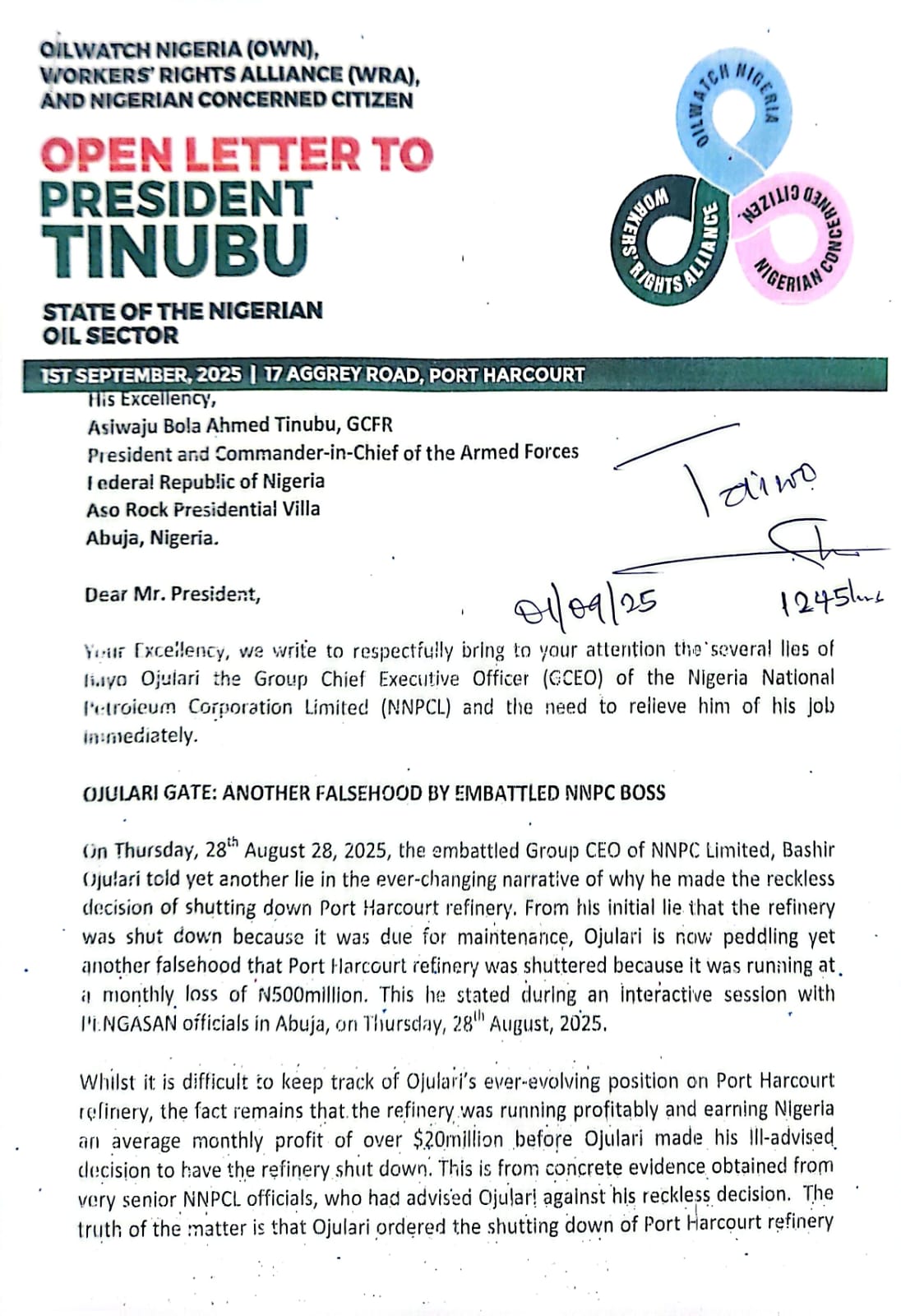
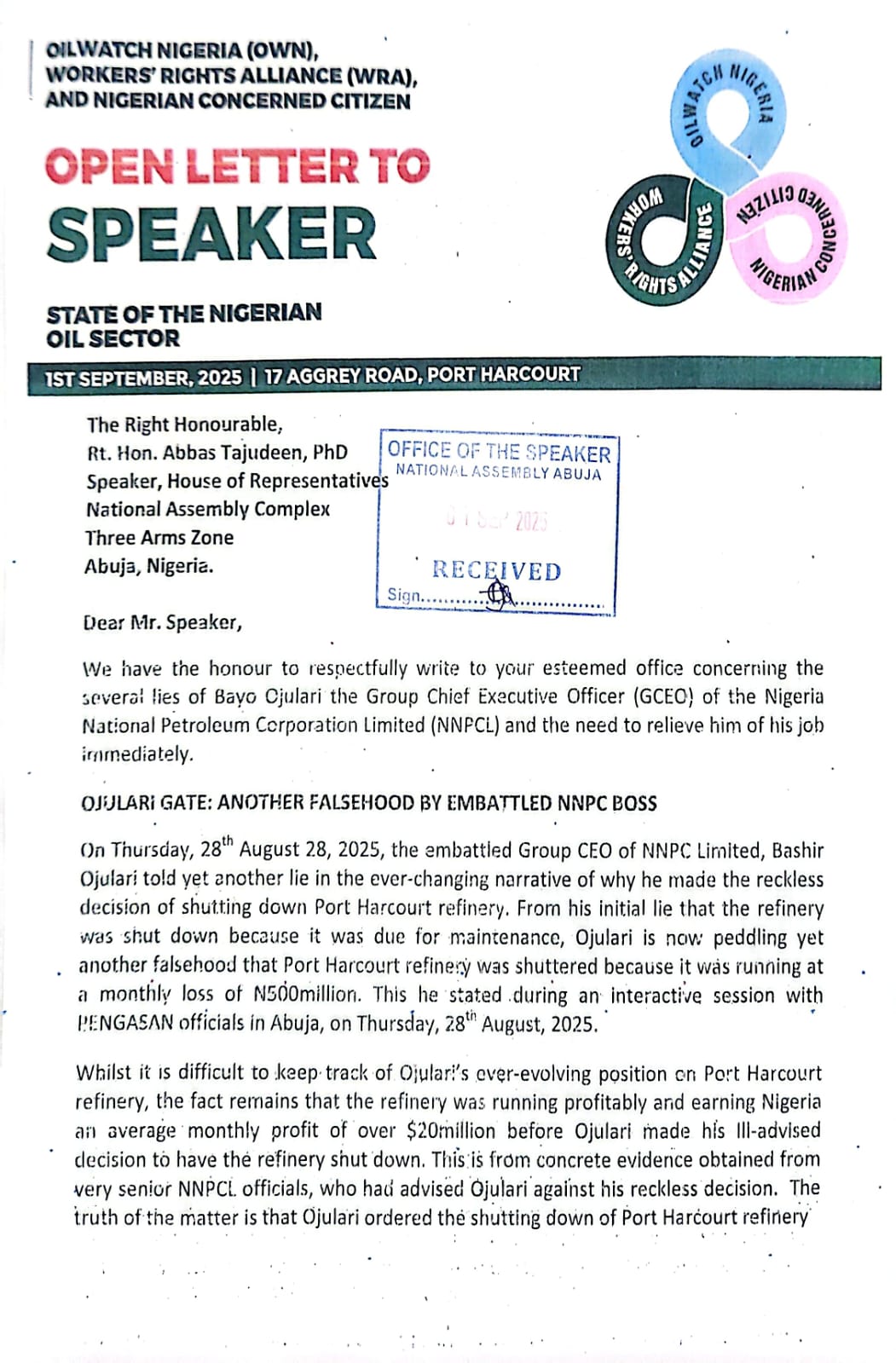
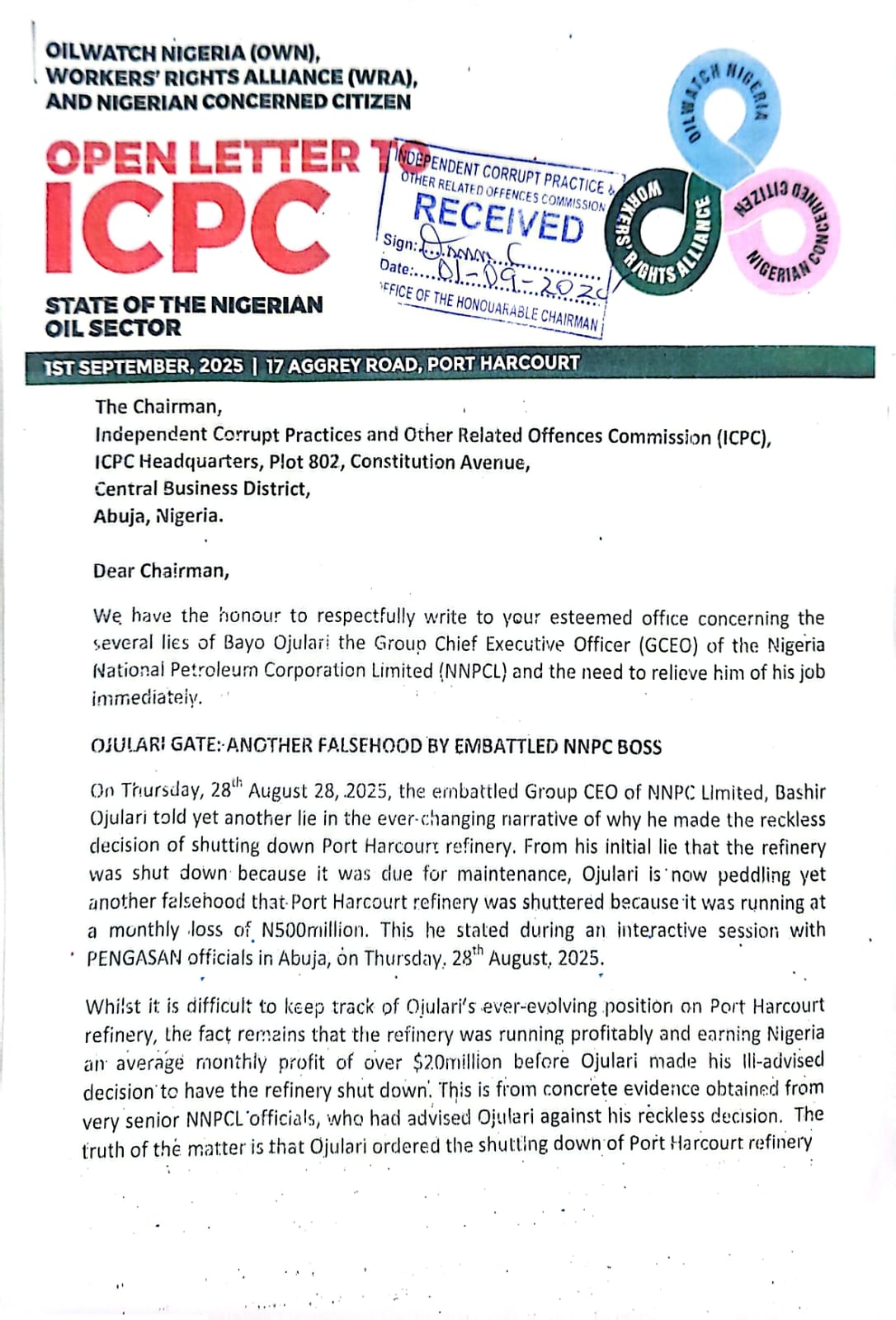
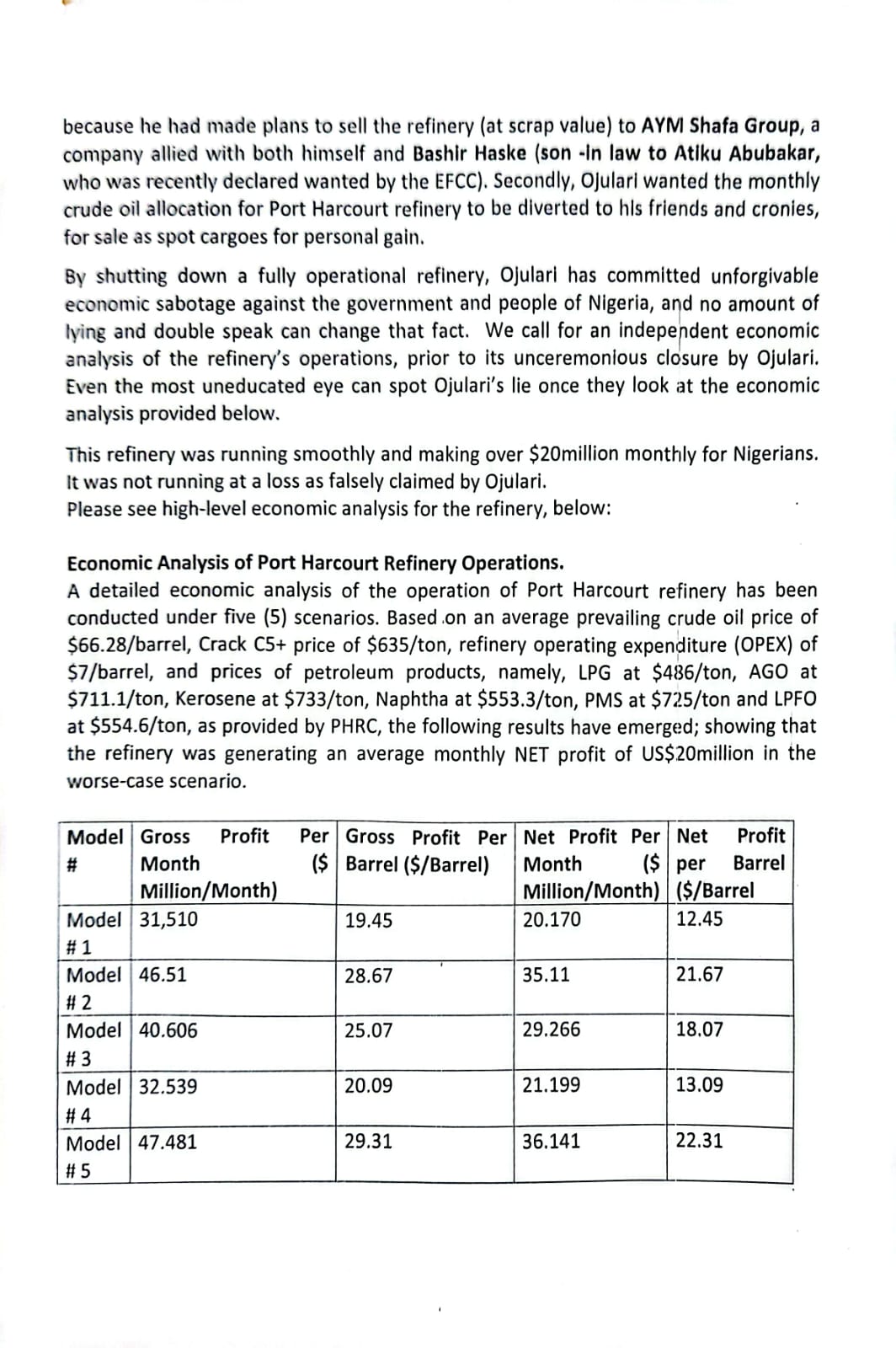
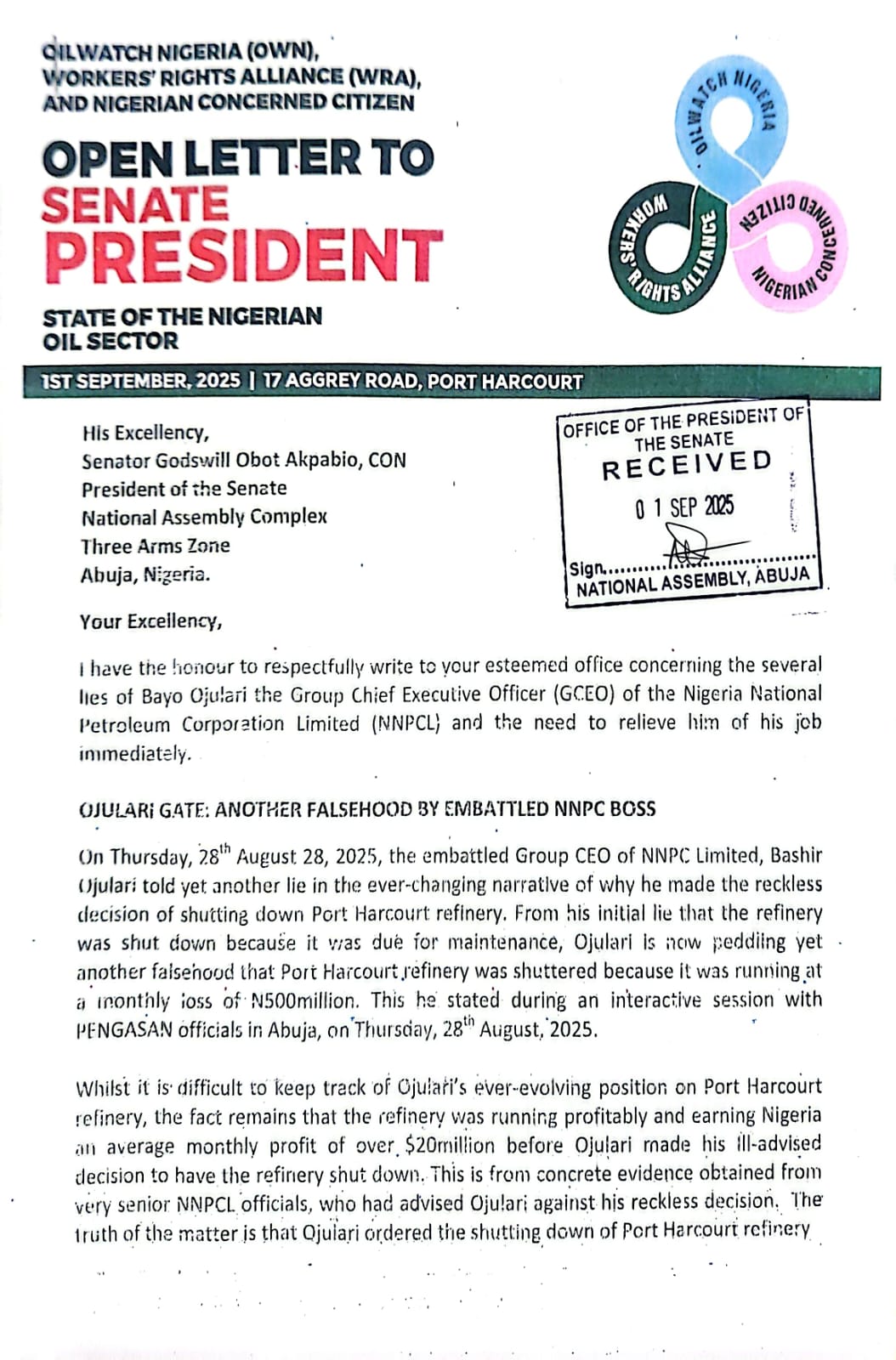
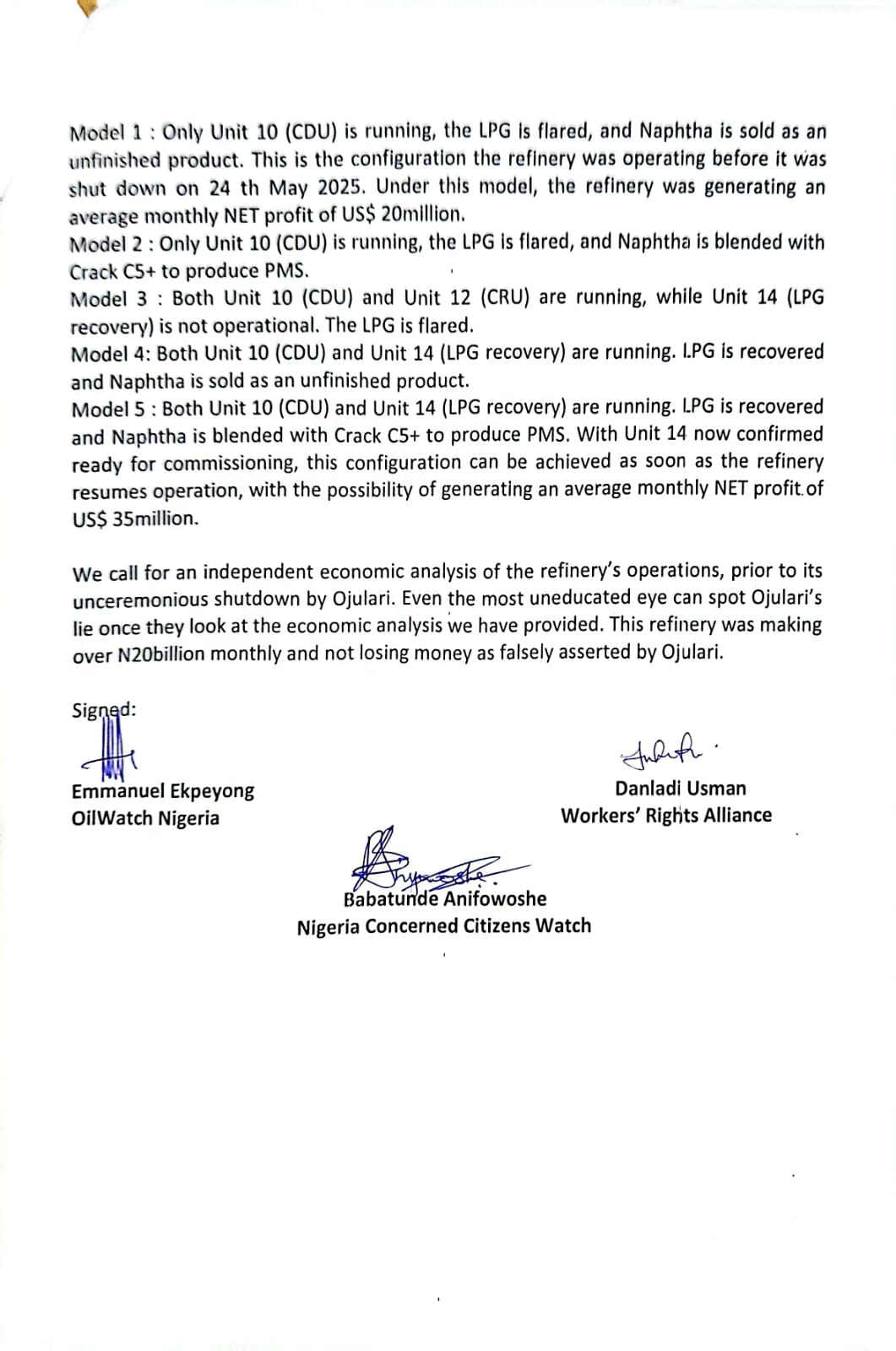 , lll
, lll
According to an open letter addressed to the ICPC Chairman on Monday September 1, 2025, Ojulari allegedly ordered the shutdown of the Port Harcourt refinery despite it being profitable, with an average monthly net profit of over $20 million. The letter claims that Ojulari’s decision was motivated by plans to sell the refinery at scrap value to a company allied with him and to divert the refinery’s crude oil allocation for personal gain.
The group also addressed the open letter to President Bola Tinubu, Senate President Godswill Akpabio, and Speaker of the House of Representatives Tajudeen Abbas regarding their recent concerns about the management of the state-owned refinery.
The letter further alleges that Ojulari has been peddling falsehoods about the refinery’s operations, initially claiming that it was shut down for maintenance and later stating that it was running at a monthly loss of N500 million.
An economic analysis of the refinery’s operations, attached to the letter, shows that the refinery was generating an average monthly net profit of $20 million under various scenarios. The analysis suggests that Ojulari’s claims of the refinery running at a loss are false and that the shutdown was a deliberate act of economic sabotage.
The signatories to the letter, including OilWatch Nigeria, Workers’ Rights Alliance, and Nigeria Concerned Citizens Watch, are calling for Ojulari’s immediate removal from office and an independent investigation into the refinery’s shutdown.
The letter reads in part:
On Thursday, 28th August 28, 2025, the embattled Group CEO of NNPC Limited, Bashir Ojulari told yet another lie in the ever-changing narrative of why he made the reckless decision of shutting down Port Harcourt refinery. From his initial lie that the refinery was shut down because it was due for maintenance, Ojulari is now peddling yet another falsehood that Port Harcourt refinery was shuttered because it was running at a monthly loss of N500million. This he stated during an interactive session with PENGASAN officials in Abuja, on Thursday, 28th August, 2025.
Whilst it is difficult to keep track of Ojulari’s ever-evolving position on Port Harcourt refinery, the fact remains that the refinery was running profitably and earning Nigeria an average monthly profit of over $20million before Ojulari made his Ill-advised decision to have the refinery shut down. This is from concrete evidence obtained from very senior NNPCL officials, who had advised Ojulari against his reckless decision. The truth of the matter is that Ojulari ordered the shutting down of Port Harcourt refinery
because he had made plans to sell the refinery (at scrap value) to AYM Shafa Group, a company allied with both himself and Bashir Haske (son -in law to Atiku Abubakar, who was recently declared wanted by the EFCC). Secondly, Ojulari wanted the monthly crude oil allocation for Port Harcourt refinery to be diverted to his friends and cronies, for sale as spot cargoes for personal gain.
By shutting down a fully operational refinery, Ojulari has committed unforgivable economic sabotage against the government and people of Nigeria, and no amount of lying and double speak can change that fact. We call for an independent economic analysis of the refinery’s operations, prior to its unceremonious closure by Ojulari. Even the most uneducated eye can spot Ojulari’s lie once they look at the economic analysis provided below.
This refinery was running smoothly and making over $20million monthly for Nigerians. It was not running at a loss as falsely claimed by Ojulari.
Please see high-level economic analysis for the refinery, below:
Economic Analysis of Port Harcourt Refinery Operations.
A detailed economic analysis of the operation of Port Harcourt refinery has been conducted under five (5) scenarios. Based on an average prevailing crude oil price of $66.28/barrel, Crack C5+ price of $635/ton, refinery operating expenditure (OPEX) of $7/barrel, and prices of petroleum products, namely, LPG at $486/ton, AGO at $711.1/ton, Kerosene at $733/ton, Naphtha at $553.3/ton, PMS at $725/ton and LPFO at $554.6/ton, as provided by PHRC, the following results have emerged; showing that the refinery was generating an average monthly NET profit of US$20million in the worse-case scenario.
Model
# Gross Profit Per Month ($ Million/Month) Gross Profit Per Barrel ($/Barrel) Net Profit Per Month ($ Million/Month) Net Profit per Barrel ($/Barrel
Model
# 1 31,510 19.45 20.170 12.45
Model
# 2 46.51 28.67 35.11 21.67
Model
# 3 40.606 25.07 29.266 18.07
Model
# 4 32.539 20.09 21.199 13.09
Model
# 5 47.481 29.31 36.141 22.31
Model 1 : Only Unit 10 (CDU) is running, the LPG is flared, and Naphtha is sold as an unfinished product. This is the configuration the refinery was operating before it was shut down on 24 th May 2025. Under this model, the refinery was generating an average monthly NET profit of US$ 20million.
Model 2 : Only Unit 10 (CDU) is running, the LPG is flared, and Naphtha is blended with Crack C5+ to produce PMS.
Model 3 : Both Unit 10 (CDU) and Unit 12 (CRU) are running, while Unit 14 (LPG recovery) is not operational. The LPG is flared.
Model 4: Both Unit 10 (CDU) and Unit 14 (LPG recovery) are running. LPG is recovered and Naphtha is sold as an unfinished product.
Model 5 : Both Unit 10 (CDU) and Unit 14 (LPG recovery) are running. LPG is recovered and Naphtha is blended with Crack C5+ to produce PMS. With Unit 14 now confirmed ready for commissioning, this configuration can be achieved as soon as the refinery resumes operation, with the possibility of generating an average monthly NET profit of US$ 35million.
We call for an independent economic analysis of the refinery’s operations, prior to its unceremonious shutdown by Ojulari. Even the most uneducated eye can spot Ojulari’s lie once they look at the economic analysis we have provided. This refinery was making over N20billion monthly and not losing money as falsely asserted by Ojulari.

